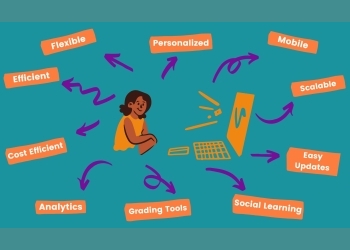
As a parent, it's natural to worry about your child's safety, especially when it comes to their use of phones and other digital devices. With the rise of smartphones and social media, kids are exposed to a wide range of potential dangers, from cyberbullying and online predators to excessive screen time and decreased physical activity.
In this article, we'll explore the ways to protect your kids while using phones, providing you with a comprehensive guide to phone safety and digital parenting.
I. Setting Boundaries and Rules
Establishing clear rules and boundaries is essential for protecting your kids while using phones. Here are some tips to get you started:
1. Set screen time limits: Establish screen-free zones and times, such as during meals or before bedtime.
2. Create a phone-free schedule: Designate specific times for phone use, such as during homework or after completing chores.
3. Monitor app usage: Use parental control apps to monitor and limit app usage, especially for social media and gaming apps.
4. Establish consequences: Set clear consequences for breaking phone rules, such as losing phone privileges or having to complete extra chores.
II. Using Parental Control Apps
Parental control apps are an excellent way to monitor and control your child's phone usage. Here are some popular options:
1. Qustodio: A comprehensive parental control app that monitors screen time, app usage, and online activity.
2. Net Nanny: A user-friendly app that filters online content, monitors social media, and sets screen time limits.
3. Kaspersky Safe Kids: A robust app that monitors online activity, sets screen time limits, and provides GPS tracking.
4. OurPact: A popular app that allows parents to set screen time limits, monitor app usage, and block online content.
III. Teaching Digital Literacy
Digital literacy is essential for kids to navigate the online world safely. Here are some tips to teach your kids digital literacy:
1. Talk about online safety: Discuss the importance of online safety, cyberbullying, and online predators.
2. Teach password management: Encourage your kids to use strong, unique passwords and to never share them with anyone.
3. Explain online etiquette: Teach your kids to be kind, respectful, and responsible online.
4. Discuss digital footprint: Explain the concept of digital footprint and the importance of being mindful of online actions.
IV. Monitoring Online Activity
Monitoring online activity is crucial for protecting your kids from online dangers. Here are some tips to monitor online activity:
1. Use parental control software: Utilize parental control software to monitor online activity, block online content, and set screen time limits.
2. Check browser history: Regularly check browser history to ensure your kids are not accessing inappropriate content.
3. Monitor social media: Keep an eye on your kids' social media activity, including their online interactions and the content they share.
4. Set up Google SafeSearch: Enable Google SafeSearch to filter out explicit content from search results.
V. Protecting Against Cyberbullying
Cyberbullying is a growing concern for parents, and it's essential to take steps to protect your kids. Here are some tips to protect against cyberbullying:
1. Talk to your kids about cyberbullying: Discuss the importance of being kind online and the dangers of cyberbullying.
2. Monitor online activity: Keep an eye on your kids' online activity, including their social media interactions and online conversations.
3. Teach empathy and kindness: Encourage your kids to be kind and empathetic online, and to treat others with respect and dignity.
4. Report cyberbullying incidents: If your kid experiences cyberbullying, report the incident to the relevant authorities, including the school and social media platforms.
VI. Conclusion
Protecting your kids while using phones requires a combination of setting boundaries, using parental control apps, teaching digital literacy, monitoring online activity, and protecting against cyberbullying. By following these tips and staying informed about the latest online safety trends, you can help keep your kids safe in the digital age.
Remember, parenting in the digital age requires ongoing effort and attention. By staying engaged and proactive, you can help your kids navigate the online world safely and responsibly.
References
- Common Sense Media. (2022). The Common Sense Census: Media Use by Tweens and Teens.
- Pew Research Center. (2022). Mobile Technology and Home Broadband 2022.
- (link unavailable) (2022). Cyberbullying.
Comments (0)
📌 By commenting, you agree to follow these rules. Let’s keep HowweBiz a safe and vibrant place for music lovers!












